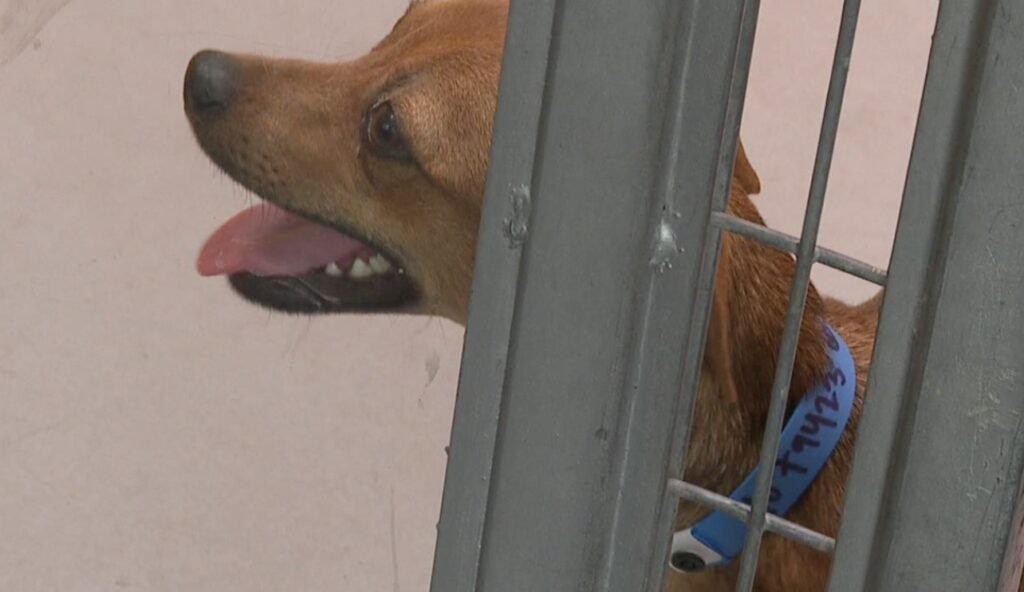A Washington state veterinarian has issued a warning to dog owners about a mysterious respiratory illness that has been affecting dogs across the nation. The illness, which has not been identified yet, can cause severe pneumonia and even death in some cases.
According to Dr. Jennifer Waldrop, a veterinarian at Northwest Veterinary Specialists in Tacoma, the illness starts with a cough that does not respond to antibiotics. The cough can last for weeks or months, and can progress to difficulty breathing, fever, lethargy, and loss of appetite. Some dogs may also have nasal or eye discharge, sneezing, or vomiting.

The illness can affect dogs of any age, breed, or health status, but it seems to be more common in dogs that have frequent contact with other dogs, such as in boarding facilities, dog parks, or day care centers.
How widespread is the illness?
The illness has been reported in several states across the country, including Oregon, Colorado, Indiana, Illinois, Washington, Idaho, California, and the Northeast. The exact number of cases and deaths is not known, but some veterinarians have seen a spike in respiratory cases in the past few months.
The Oregon Department of Agriculture has received reports of over 200 cases of the illness since mid-August, and is working with other health authorities to try to find the cause of the illness. The Colorado State University Veterinary Teaching Hospital has also seen an increase in cases of dogs with coughs lasting several weeks or months.
What is the cause of the illness?
The cause of the illness is still unknown, but veterinarians are testing samples from affected dogs to try to identify the pathogen. Some of the tests that have been done so far have ruled out common causes of respiratory illness in dogs, such as kennel cough, influenza, distemper, and coronavirus.
Some veterinarians suspect that the illness may be caused by a new or emerging virus, or a combination of pathogens that interact in a novel way. Dr. Kurt Williams, director of the Oregon Veterinary Diagnostics Lab, who has been researching the illness for the past month and a half, told TODAY.com that he is looking for clues in the genetic material of the samples.
What can dog owners do to protect their pets?
Veterinarians advise dog owners to be vigilant and monitor their dogs for any signs of respiratory illness. If a dog develops a cough, they should contact their veterinarian and isolate the dog from other dogs until the cough resolves. They should also avoid taking their dogs to places where they may encounter other dogs, such as dog parks, groomers, or boarding kennels.
Dog owners should also make sure that their dogs are up to date on their vaccinations, especially against respiratory diseases. While the current vaccines may not protect against the unknown illness, they can prevent other infections that may complicate the situation.
Dog owners should also seek emergency care if their dogs show signs of severe respiratory distress, such as blue gums, rapid breathing, or collapse.
Is there a treatment or cure for the illness?
There is no specific treatment or cure for the illness, but veterinarians can provide supportive care to help the dogs recover. This may include oxygen therapy, fluids, anti-inflammatory drugs, and antibiotics to prevent secondary infections. Some dogs may require hospitalization or intensive care, depending on the severity of their condition.
The prognosis for the illness varies, depending on the individual dog and the stage of the disease. Some dogs may recover fully, while others may have lasting lung damage or die from the illness.
Veterinarians hope that by finding the cause of the illness, they can develop better diagnostic tests, treatments, and prevention strategies. They also urge dog owners to report any cases of the illness to their local health authorities, and to cooperate with any investigations or surveillance efforts.
